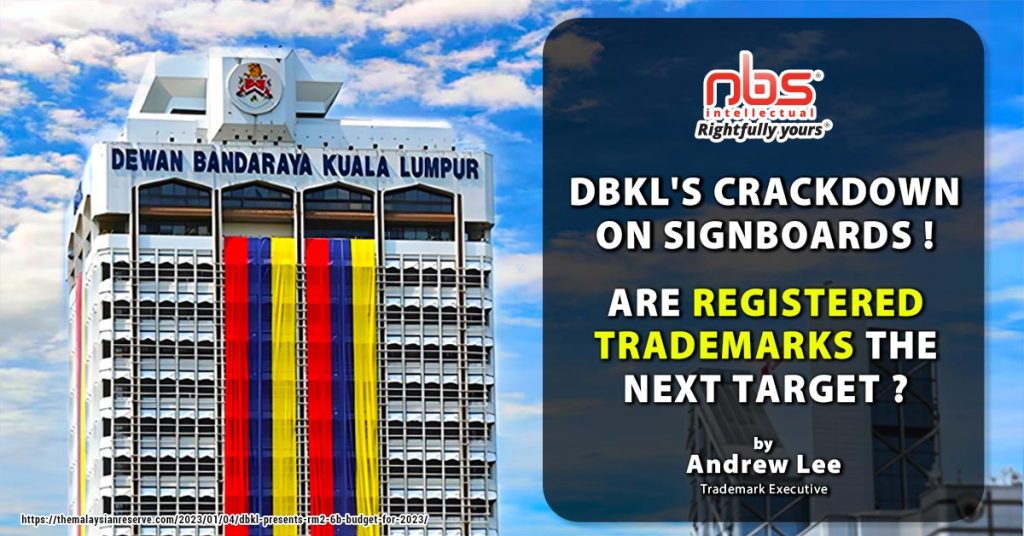
Recently, the Kuala Lumpur City Hall (DBKL) has begun enforcing regulations regarding signboards that display registered trademarks. They’ve started issuing summonses to business owners who fail to include a Bahasa Melayu translation alongside the main language on their signs. This situation raises important questions: Are trademarks used in advertisements violating Malaysian advertising laws? Could your trademark put your business at risk with the local city council?
Understanding the Law
Under the Trademarks Act 2019, a trademark is defined as any sign that can be visually represented to distinguish one business’s goods or services from another’s. In simple terms, it can be a logo or symbol that helps customers identify a business.
DBKL bases its enforcement on the Local Government Act 1976 (LGA 1976) and the Advertisements (Federal Territory) By-Laws 1982 (By-Laws). These laws give DBKL the authority to create and regulate local advertising laws, so it’s essential to check your local by-laws, as rules can vary across different States in Malaysia.
Essentially, DBKL is enforcing Section 3 of the Advertisements By-Laws, which essentially states that advertisements to be in the national language (Bahasa Melayu); advertisements may be in other languages, but the Bahasa Melayu text must be more prominent and larger than any other language and advertisements must meet these criteria to be displayed legally.
However, there is an exception in Section 3(4) of the By-Laws. If your advertisement is for a firm, society, or company registered under the Registrations of Business Act 1956, the Companies Act 1965 (repealed by the Companies Act 2016), or the Societies Act 1966, it is permissible to use another language without necessarily including Bahasa Melayu in your advertisements.
Key Considerations
- Is a Trademark on a Signboard Considered an Advertisement?
Yes, a trademark displayed on a signboard is classified as an advertisement. The By-Laws define an “advertisement” broadly, encompassing any form of communication designed to inform the public about a business, product, or service. - Does Trademark Registration Exempt You from By-Law Compliance?
No, simply having a registered trademark does not exempt you from adhering to local advertising by-laws. The Trademarks Act 2019 does not provide any exceptions regarding advertising compliance.
Ensuring Compliance
To ensure your brand/trademark aligns with local advertising laws, consider the following steps:
- If your advertised brand uses the name of your business, company or society as exempted under Section 3(4), it would be beneficial to secure further brand protection through trademark registration, however this would still be subjected to whether your brand/trademark is sufficiently distinctive under the Trademarks Act 2019
- Create or incorporate a Malay version of your brand/trademark or use appropriate descriptors in the national language (i.e “Kedai Makanan/Restoran”).
- Wordless trademark containing only a device/graphical element (i.e Apple’s logo, Nike’s “Swoosh” logo) could also be considered.
- Use meaningless words which are not defined in any available dictionary, or the national language (i.e Toshiba, Toyota, Padini)
For more guidance, feel free to contact us at NBS Intellectual, and we will help ensure your brand is Rightfully Yours!


